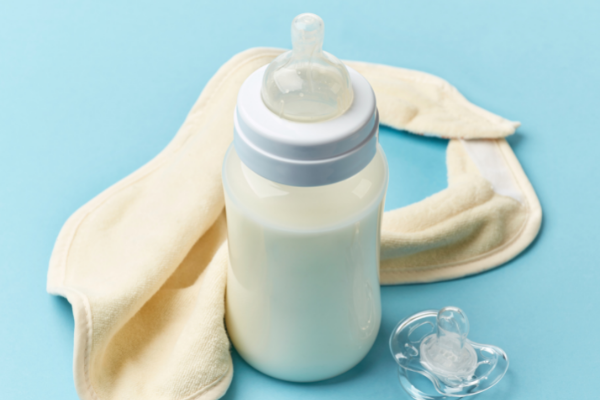If you’re the parent of a newborn and cannot find formula anywhere, you’re not alone.
There is a nationwide shortage of baby formula that is making life difficult for many people.
Due to increased demand for baby formula products and various supplier challenges, infant and toddler formulas are seeing constraints across the country.
The supply shortage has gotten so stark that stores have begun rationing.
Below we will discuss why the shortage happened and when you can expect it to end.

Why Is There A Formula Shortage?
Due to two infant deaths, a formula plant shutdown triggered the infant formula shortage.
There’s now a dangerous shortage of powdered infant formula and special formulas needed to keep many children and adults alive.
The Abbott Nutrition plant in Sturgis, Mich., was one of the biggest suppliers of infant formula nationally.
The Abbott Laboratories plant was also the primary supplier of several lesser-known specialty formulas.
Those formulas, which are getting harder and harder to get, are lifelines for thousands of people with rare medical conditions.
Some of the medical conditions these formulas help with are metabolic, allergic, and gastrointestinal disorders, which can make eating regular foods impossible or dangerous.
The situation has struck fear in parents and medical professionals alike.
The aftermath of the shortage has raised questions about whether or not the federal government should do more to ensure critical and life-sustaining supply chains don’t break down.
Speaking of supply chains, supply-chain issues due to COVID-19 have contributed to the shortage of powdered formula around the U.S.
Manufacturers have had more difficulty getting key ingredients, packaging hangups, and labor shortages.
Formula Recalls Aren’t Helping
A voluntary recall Abbott Nutrition issued in mid-February recalling select batches of Similac, Alimentum, and EleCare formulas in Sturgis, Michigan, has only worsened the problem.
That recall was expanded in late February to include one lot of Similac PM 60/40.
In March, the Food and Drug Administration also issued preliminary findings of failure to maintain sanitary conditions and procedures at the formula plant.
What Can You Do In The Meantime?
Manufacturers are increasing output to fulfill families’ needs, according to the Infant Nutrition Council of America.
Parents should also maintain a 10-day to two-week supply of formula on hand, according to the organization, but not to stockpile products.
Until everything gets back to normal, here are a couple of things to do if you’re in a tough spot.
- Ask Your Pediatrician For Help
Some pediatricians keep samples of the more specialized formulas that can be hard to find.
Your children’s doctor may also have a working relationship with formula companies and can request special shipments for their patients.
They can also refer you to a regulated breast milk bank that can provide safe, pasteurized breast milk for babies.
- Be Flexible
You can switch between baby formula brands as long as it’s the same type of formula.
Just be sure not to switch from cow milk protein-based formula to soy.
The brands are very similar. It’s sort of like Coke and Pepsi.
There might be a slight difference in taste, but it’s virtually the same.
If your child is on a specialized type of formula for an allergy or intolerance, you will have to find another specialized formula that meets that need until you can return to your usual formula.
How Long Will The Shortages Last?
Families should start seeing some relief soon.
Abbot and the FDA have suggested a settlement that would allow the corporation to restore the shuttered Michigan factory under the supervision of an independent expert.
If it is allowed, the corporation could reopen the site in two weeks, and its products would be available in six to eight weeks after that.
The FDA has also outlined a series of steps to boost supply, including procedures to make it simpler for foreign infant formula manufacturers to market their goods in the United States. Right now, the U.S. produces about 98% of formula domestically.
The FDA will also ease some of the requirements on formula companies on a case-by-case basis.

Will Something Be Done To Be Sure This Doesn’t Happen Again?
Some people want the federal government to tackle the monopoly a handful of companies have on the formula market.
Booker, Warren, and other senators call for immediate antitrust review, stating, “This is yet another example of how alarming levels of consolidation hurt American families and can no longer be ignored.”
Kellams and Duggan also call for policy changes to better support breastfeeding mothers.
The U.S. is the only industrialized nation that does not mandate paid maternity leave.
Contact Alexander Shunnarah Trial Attorneys today if you have any questions about your legal rights.
